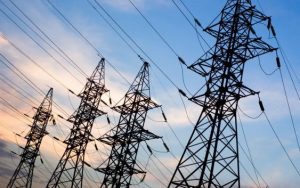In response to President Trump’s withdrawal from the Paris Agreement, thousands of American organisations, including corporations, states, municipalities and NGOs publicly declared their support for the accord, by throwing their weight behind the #WeAreStillIn movement.
However, as reported by The Intercept, several corporations – including Dow Chemical and Corning Inc – had previously lobbied the Trump administration to withdraw from the Paris Agreement. Both are members of the Industrial Energy Consumers of America (IECA), an industry body representing large energy users. The IECA had written to the White House on several occasions, arguing that the accord would negatively impact competitiveness and jobs.
More importantly for Australians, ASX-top 50 company Incitec Pivot is also a paid up member of IECA. Incitec Pivot manufactures fertilisers, industrial chemicals and explosives, including those used for blasting in mining; making it a significant energy user both in the United States and Australia. As a major Australian company, most superannuation funds will have their members’ retirement savings invested in the company.
That Incitec Pivot indirectly lobbied for the US to withdraw from the Paris Agreement is surprising, but not entirely out of character. CEO James Fazzino previously described Australia’s energy policy as a ‘train wreck’ and has criticised state bans on unconventional gas.
Incitec Pivot is also an associate member of the Minerals Council, which in the wake of the Finkel Review, has been decrying the lack of support for “clean coal”. In an editorial on Tuesday CEO Brendan Pearson argued, not for the first time, why so-called “High Efficiency Low Emissions” (HELE) coal generation should qualify as ‘clean energy’. The Minerals Council has been one of the most effective lobbyists on energy policy in recent years, essentially providing the talking points for the members of the Liberal and National Parties.
Yet some of the Minerals Council’s largest member companies, including BHP Billiton and Rio Tinto, have declared their support for the Paris Agreement. When questioned how their support for the Paris Agreement reconciles with the lobbying efforts of the Minerals Council, responses are inevitably some variation of “the Minerals Council represents many members” or “we don’t agree with everything they say”. At what point in time then, do the lobbying efforts of industry bodies actually represent the views of its members?
For an existential crisis like climate change, member companies can no longer hide behind the curtain of the collective view. What industry bodies like the IECA and Minerals Council do and say, is now on all of their members, no exceptions.
Institutional investors, including our super funds, have a role to play here. In recent years, investors have encouraged companies to improve their disclosure around climate risk, including their positions on public policy relating to climate change. In practice, this has seen BHP Billiton and Rio Tinto publicly support initiatives like the Paris Agreement. Yet, old habits die hard. Just last week, BHP Billiton’s CEO Andrew Mackenzie stated on ABC’s 7.30 program “that it is possible to be pro-coal but also to stay in the Paris Agreement”.
Such logic controverts the latest modelling from the International Energy Agency (IEA), whose recent 1.75C policy pathway will require coal use to fall by 78% by 2060, which also assumes a heavy reliance on carbon, capture and storage (CCS). In effect, this means no new expansion of the coal industry, given the investment horizons upon which new projects are commenced.
Institutional investors have long blamed the lack of certainty around energy policy for discouraging widespread investment in renewable energy. Yet the very same investors have not been able to restrict the toxic influence on climate and energy policy of industry bodies like the Minerals Council. If investors genuinely want certainty, they must use their influence as shareholders to expose and limit the lobbying efforts of fossil fuel companies on climate and energy policy.
Dan Gocher is an analyst and campaigner with Market Forces.








